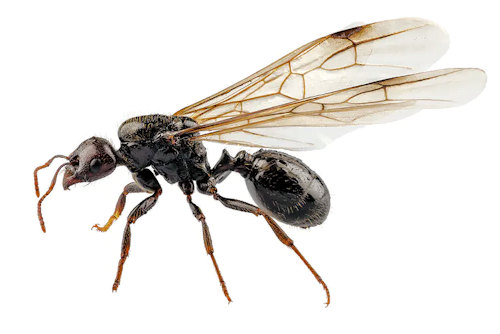There are few things more startling than seeing an ant flying around your home. Flying ants are often mistaken for termites, and can cause a massive fright.
Fortunately, our experts are trained in identifying different species. Call 131 546 and your local technician will be in touch shortly to help deal with your issue.
What are flying ants?
As suggested in the name, flying ants are ants with wings. They are not their own species themselves, but are a reproductive male or queen of a different ant species. They serve a specific purpose of leaving their colony to begin another. They swarm to mate: the males will die shortly after, while the queens will drop their wings and find a nesting site to begin a colony.
Winged ants or termites?
As suggested in the name, flying ants are ants with wings. They are not their own species themselves, but are a reproductive male or queen of a different ant species. They serve a specific purpose of leaving their colony to begin another. They swarm to mate: the males will die shortly after, while the queens will drop their wings and find a nesting site to begin a colony.

How to remove flying ants
The good news is that these pests do not usually pose a problem to you or your house. They are often spotted in summer in your garden, which is when most species breed. If you see a winged ant indoors during the summer, it’s no cause for concern and doesn’t need professional control. However, if you see a flying ant indoors during winter (out of breeding season), there could be an colony in your home or nearby.
Treating these ants will depend on what species they are. However, it is important to call us immediately so we can help identify whether there is an infestation.
How to prevent them
There are a few ways to prevent these insects from getting inside your home.
- Remove them yourself: If they’ve made it into your house, you can remove ants with wings by sucking them up through a vacuum. Release the vacuum bag outside so they don’t make their way back inside.
- Maintain your home: Keep your home in good condition. Check for any moisture issues, leaks, or problems with your plumbing which causes wood to rot. Find and replace damaged wood.
- Seal the perimeter: Seal any cracks or openings in your house’s foundation. Check around wires, windows, door frames, and utility pipes.
- Call us: If you see any of these ants in your house outside of summer, it could suggest a serious infestation in your property. Call our professional team to deal with your problem sooner rather than later.

